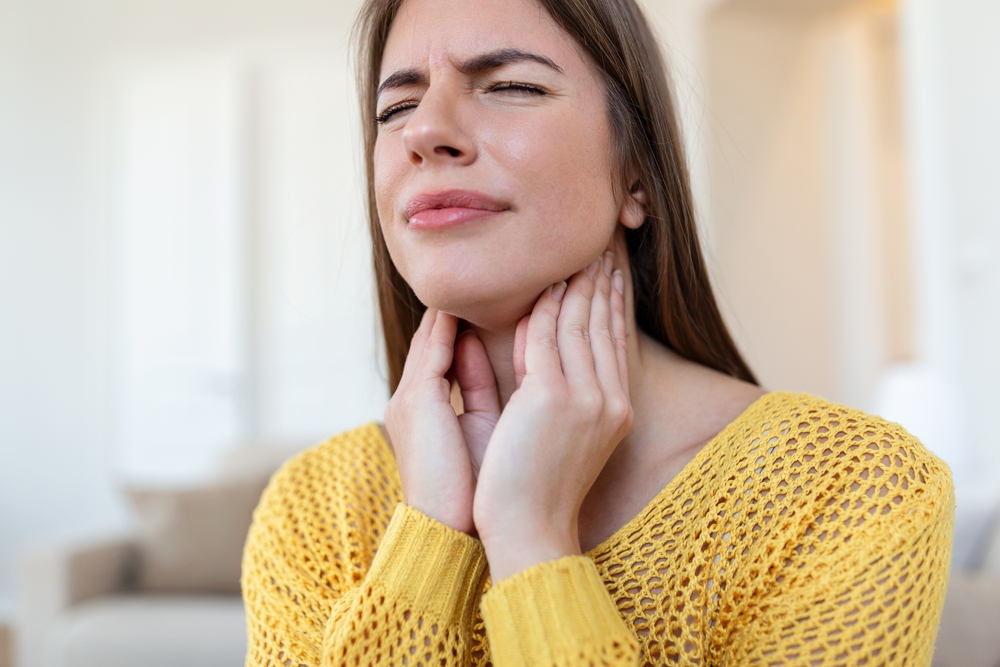Falls can have a significant impact on your health, especially as you age. That’s why more fully understanding the possible causes of falls is so important–a sound understanding of those causes can help prevent damage caused by tripping or loss of balance. For example, as researchers have learned more, it’s become clear that improving flexibility and strength are critical to minimizing fall risks.
But it’s not the only factor that should be considered. Researchers have discovered a perhaps not so surprising link between hearing loss and fall risks. A study, performed by a team from The Johns Hopkins University, found that people between the ages of 40 and 70 who had even mild hearing loss were three times more likely to fall than those who did not have hearing loss.
The study also showed that the risk of a fall increased in direct relation to the severity of the hearing loss. Understanding how hearing and balance interact can help providers and individuals alike better manage fall risks. This can lead to significant quality of life improvements: seniors will be able to stay in their homes longer, face fewer broken bones, and experience fewer fall-related emergencies.
Does hearing loss cause balance problems?
Many people are used to thinking of balance as something that starts in your feet. It’s true that good footwork can help avoid falls, but the reality is that most of your body’s sense of balance begins in your ears.
Specifically, this sense of balance begins in your inner ear. There is a portion of the inner ear called the labyrinth. The labyrinth is composed of two important parts:
- The cochlea: A spiral-shaped cavity that transmits sound to your brain.
- The vestibular system: This is a complex series of tubes that transmits balance information to your brain.
The vestibular system is filled with fluid. As the fluid moves around in each ear, your brain uses the information to calculate orientation. That’s what provides you with a sense of equilibrium.
When these signals from your ear are interrupted or distorted, a feeling of dizziness or vertigo can result. Hearing loss occurs for a wide variety of reasons–and in many cases, the same underlying causes can impact the balance signals sent from your vestibular system to your brain.
Specific causes of balance loss
Researchers have tried to gather more information on what types of hearing loss cause balance issues. There are some conditions which impact both hearing and balance. Some of those causes include the following conditions:
- Meniere’s Disease: This condition impacts the inner ear. Symptoms include episodes of hearing loss and dizziness. This chronic condition usually gets worse over time.
- Labrynthitis: This is an infection of the inner ear–specifically of the labyrinth. As the labyrinth becomes inflamed, the inner ear loses its ability to create equilibrium and its ability to hear. Treatment often involves steroids or other medications. Symptoms resolve once the swelling of the inner ear goes down.
Of course, there are plenty of balance disorders that don’t have a strong connection to hearing loss. For example, Benign Paroxysmal Positional Vertigo (BPPV) is known to cause dizziness and vertigo, but as a general rule does not result in hearing loss or ear fullness.
What are the symptoms of a balance disorder?
Though hearing loss can be a common presentation, not every balance disorder impacts your hearing. Most often, balance disorder symptoms include dizziness and vertigo. This may sometimes be accompanied by nausea. People may also experience vision issues or a sense of “floating.”
If you are thinking, when should I seek treatment for balance issues? The answer is: If you experience any of these symptoms, talk to your provider about possible treatment options.
How does hearing loss increase fall risk?
That hearing and balance are closely related does not seem in dispute. However, researchers are not always clear on how. The correlation between hearing loss and falls, for example, does not make clear the causes behind that relationship.
However, there are some possible reasons why hearing loss may impact your balance and your fall risk, including the following:
- Diminished situational awareness: Your ears help orient you to what’s happening in three-dimensional space. With untreated hearing loss, you may be less likely to notice a tripping hazard just around the corner (a family pet, for example).
- Isolation: Hearing loss has long been linked to an increase in social isolation. If you fall, you may not have people around you who can help you get back up or call for help. This can dramatically increase your risk of serious injury in the case of a fall.
- Cognitive drain and fatigue: Those with hearing loss often note a significant increase in fatigue. In large part, that’s because when hearing loss occurs, the human brain tries to compensate. This takes a significant amount of cognitive energy, leading to fatigue. This fatigue and the associated cognitive drain can make falls more likely.
Solutions for balance, hearing loss, and fall reduction
How are balance issues treated? For most people, the first step will be attempting to determine the underlying cause of your balance disorder. In some cases, steroids or antibiotics may help. Other medications may help with nausea and associated vomiting. In some cases, it’s also appropriate to ensure any underlying hearing loss is also treated.
When it comes to reducing fall risk more broadly, a more generalized approach may be more successful. This may include the following:
- Talk to an audiologist: An audiologist can help fit you with hearing aids and manage your hearing health. This can help ensure that your fall risk associated with hearing loss is as low as possible.
- Talk to a physical therapist: In many cases, physical and occupational therapists can help revitalize your visual, cognitive, and balance systems. This can help you keep your balance and prevent falls.
Get the healthcare help you need
Falls can cause serious damage as you age. Balance disorders, hearing loss, and a combination of the two can significantly increase your fall risk. That’s why prevention is so important. Preventing a fall can give you more time in your home, more time with your family, and more joy and comfort in your everyday life.
Search for an audiologist near you to schedule an appointment today.



